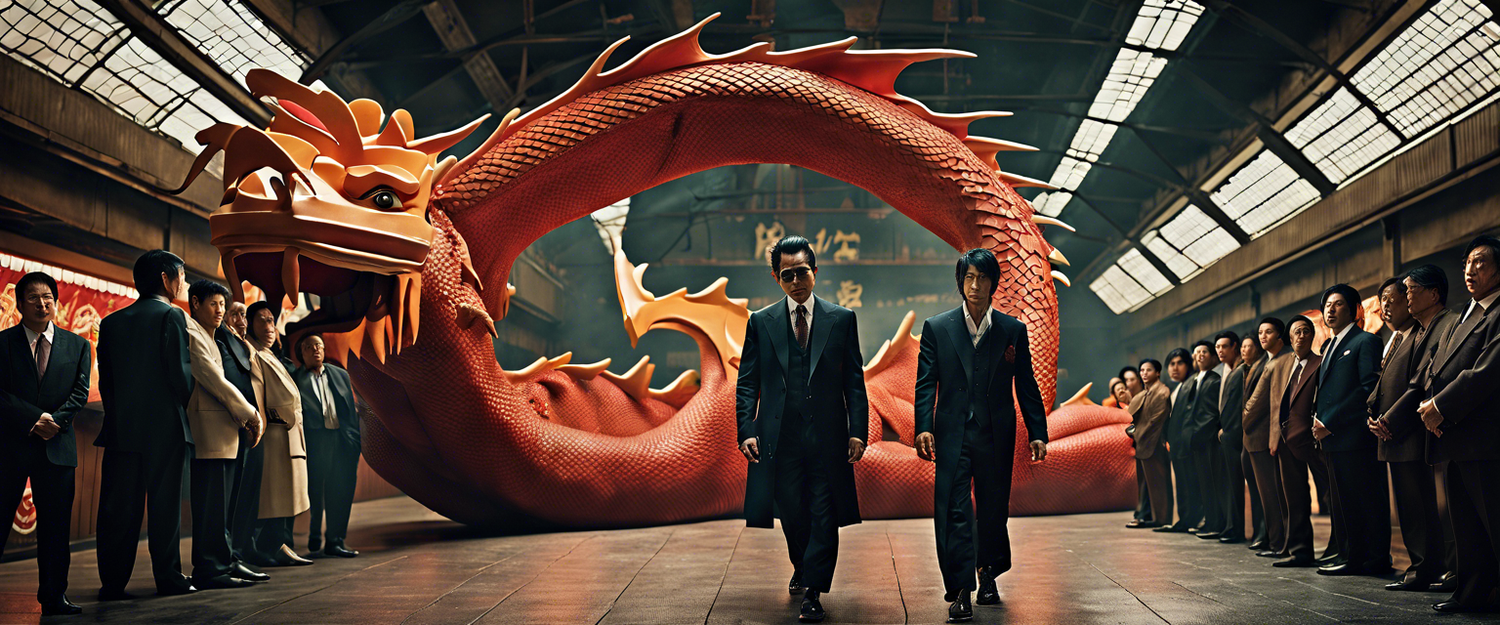Amazon Prime Video's Like a Dragon: Yakuza – A Refreshing Take on Video Game Adaptations
Recently, I delved into the first episode of Amazon Prime Video’s Like a Dragon: Yakuza, intending only to watch one episode before heading to bed. However, three episodes later, I was fully engaged and wanted more. For viewers expecting a faithful adaptation of the beloved Yakuza video game series, disappointment may arise, but this very deviation from the original makes the show a unique experience worth watching.
Plot Overview: A Tale of Two Timelines
Like a Dragon represents Amazon’s second video game adaptation, following the unexpected success of its Fallout series. It stars Ryoma Takeuchi as Kazuma Kiryu, an orphan who ventures into the Tojo Yakuza Clan, aspiring to earn the prestigious title of Dragon of Dojima.
The narrative is loosely based on the first two Yakuza games, unfolding across two concurrent timelines set in 1995 and 2005. Each of the series' six episodes smoothly transitions between these timelines, illustrating not only Kiryu's ascent and tribulations as a yakuza member but also the fragmentation and subsequent reformation of his chosen family a decade later.
Distinguishing Features of Like a Dragon
One particularly striking aspect of Like a Dragon is its depiction of violence. Unlike the Yakuza series, which masterfully presents violence in a more restrained manner, the show embraces a more graphic portrayal. Gun violence and murder are rampant, starkly contrasting the games, where street brawls were fought with fists, grapples, and makeshift weapons like traffic cones. One murder in particular—an unexpected act against an innocent civilian—left a profound impact, making for a chilling viewing experience.
Narrative Depth and Character Development
The dual timelines enhance the storytelling, allowing viewers to piece together the narrative like a thrilling mystery. In 1995, Kiryu is surrounded by a supportive surrogate family, highlighted by two father figures—a former yakuza who raised him and his clan leader. By 2005, the absence of these figures reinforces his struggles, branding him with the ominous title of oyagoroshi, or “father killer.” This clever back-and-forth structure compellingly fills narrative gaps, amplifying the tension and engagement.
Balancing Tone: Drama Over Comedy
While Yakuza games are known for their eccentric humor and outrageous scenarios, such as Kiryu battling grown men in diapers, Like a Dragon wisely chooses to prioritize dramatic storytelling over comedic elements. The lack of player interaction in this adaptation means that the humor would lack impact—a sudden cut from a brutal scene to Kiryu enjoying arcade games could result in tonal whiplash, detracting from the overall experience.
The Flaws of Familiarity
Despite its strengths, Like a Dragon risks becoming tedious in later episodes, mirroring issues seen in other adaptations, like Paramount’s Halo. That series thrived by introducing familiar characters into new narratives. Although Like a Dragon incorporates new characters and remixes known story elements, it ultimately revolves around a familiar tale, leaving some viewers wanting more originality.
A Cautious but Promising Step in Adaptations
A critical success for video game adaptations lies in balance—incorrectly relying on a straight replication of the game can lead to disappointment. While it may not revolutionize the Yakuza franchise in the way Fallout revived interest in its universe, Like a Dragon establishes its identity by showcasing strong television qualities, placing narrative substance over mere references.
Final Thoughts
With its compelling storytelling, character complexity, and a fresh approach to themes of family and vengeance, Like a Dragon: Yakuza successfully stands on its own while still paying homage to the source material. For fans of Yakuza or newcomers to the story, it promises an engaging viewing experience that breaks the mold of typical video game adaptations.



Leave a comment
All comments are moderated before being published.
यह साइट hCaptcha से सुरक्षित है और hCaptcha से जुड़ी गोपनीयता नीति और सेवा की शर्तें लागू होती हैं.